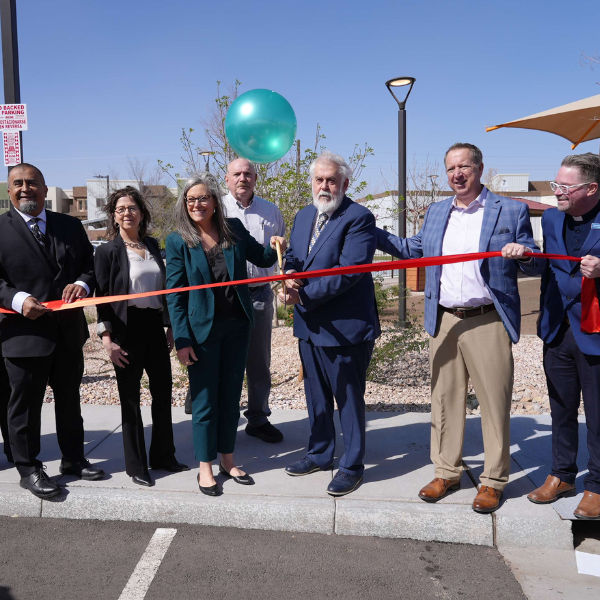
As leaders begin to consider where to invest public funds, the question for lawmakers, opinion leaders, and the general public may simply be, “What happens next?” Many new programs have been considered and many ideas have been introduced to address educational challenges. Of course, the answer to “what happens next” depends on what the appropriate vision for the future is.
The future can be bright for states that are on a positive economic trajectory and are actively working to maintain that momentum. Of course, there are issues that need to be addressed, such as underemployment, talent shortages and graduate retention. But to reach its potential, Alabama needs to focus on a simple goal. Nations need to prepare for competition at all levels of the global economy.
The Higher Education Partnership, which represents Alabama's 14 public universities, is happy to answer the question, “What happens next?” with clear and to the point answers. We will fund all public education and build a knowledge-based economy that provides diverse, free employment opportunities for our people.
The university's mission is important, and we stand ready to continue that important work. Of course, K-12 and post-secondary education also make important contributions to the economy. However, they do not exist in isolation.
The university and its talented faculty, staff, students, and alumni bring significant economic value back to the state. From the engineering that builds bridges, buildings, and rockets to the computer science that powers mobile phones and the digital technologies that simplify our lives, universities are a vital source of discovery and implementation. From biology to chemistry, physics and mathematics, universities develop skills that are fundamental to the development of new technologies and are applied every day to solve problems.
Who wouldn't want to develop new health care options? From history, English, social sciences, finance, law, agriculture, education, and more, universities make important contributions to Alabama's economy. The foundation of the state's future will be built on the knowledge gained through the university system.
So when asked, “What happens next?”, the partnership answers with a straightforward statement: fully fund public education, which is essential to Alabama’s future. Open the door to the future by creating multiple paths for young people to decide how to move forward. Ensure that the 180,000 students enrolled in Alabama's public universities are recognized as an important part of the state's economic plan. States should focus on recruiting knowledge-based jobs and opportunities that are attractive to these students.
If the importance of workforce development is being consistently communicated to the public, that message should be inclusive of the entire workforce, and the results should be focused on college and career readiness. It doesn't have to be. When people hear that their path forward is limited, they will make decisions out of fear rather than faith. Consider a young man walking down the sidewalk as the sun falls behind the trees. Due to limited light, the young man can only see one path ahead. He focuses on that path. Suddenly, the young man realized that he was approaching an intersection with multiple options when street lights began to flash and illuminate his path.
Which path will he choose? Now that he can see the street, he can see in all directions and make smart, informed choices. If he only saw one path forward, he wouldn't know what he was missing. Alabama should be a state that believes in a future that illuminates multiple paths and opens doors of opportunity for its people.
It is time for Alabama to examine the funding advances its public universities have made over the years.
*Consider how training farmers to take full advantage of peanuts' multiple uses helped build a thriving economy in the wiregrass. The discovery of the potential of this simple nut led to the development of a national program to make the crop flourish and become the fiber of much of the state's economy.
*Look at biological science and what it brings to the heart of Alabama. Continuing advances in cardiology and other medical technologies through the state's medical research efforts have made Alabama a world leader in saving lives.
*Look up at the stars and see how highly educated leaders in the world of space exploration have played an important role in the economic development of all of north Alabama.
* Understand that the development of a financial system for sharing resources led to capital investment and enabled ideas to become successful projects in every community in Alabama. Capital sharing, a fundamental service of the banking industry, was a byproduct of a statewide system that thrived on leaders trained in finance, accounting, and investment. These are all skills honed at the university level.
*Finally, remember that our ability to educate, feed, protect, and keep Alabama's people healthy for generations is directly and indirectly a result of the efforts of our state universities. please.
The answer to the question, “What happens next?” clearly is to fund public education as a whole. Alabama needs her PreK to be excellent before Ph.D. education. Her PreK role for 12 schools, higher education institutions and universities is inseparable. Each will play a powerful and important role in the future.
Now is the time to expand the definition of “what happens next.” We need to ensure that we promote a path forward that includes all public education. Build an economy unparalleled in the world. That way our youngest dreamers will never be told to follow a single path. They will be taught to believe in the impossible.
Creating access to public education at all levels and facilitating the realization of educational potential is the answer to the question, “What happens next?”
Gordon Stone is Executive Director of the Higher Education Partnership. Visit www.higheredpartners.org.
Do not miss it! Subscribe now Get the top Alabama headlines delivered to your inbox.







